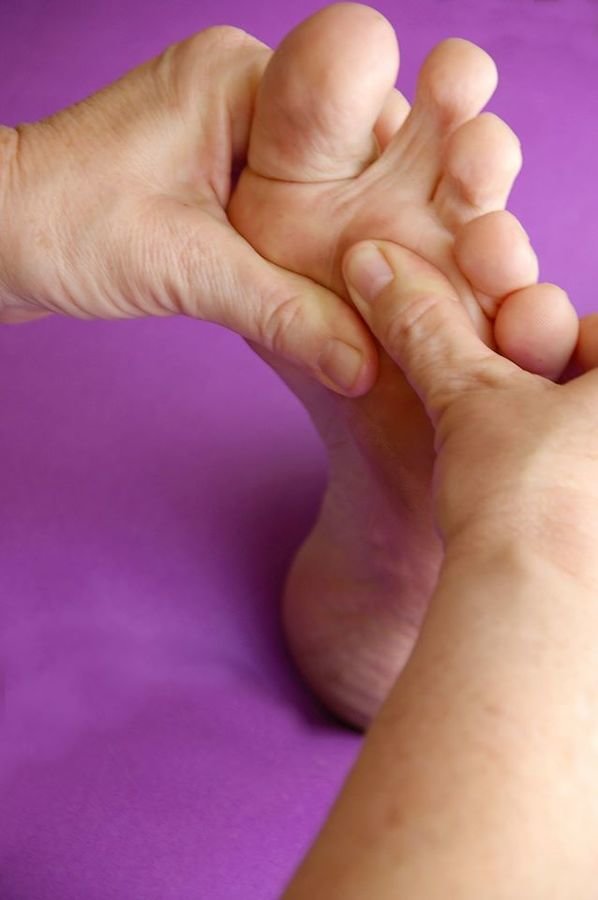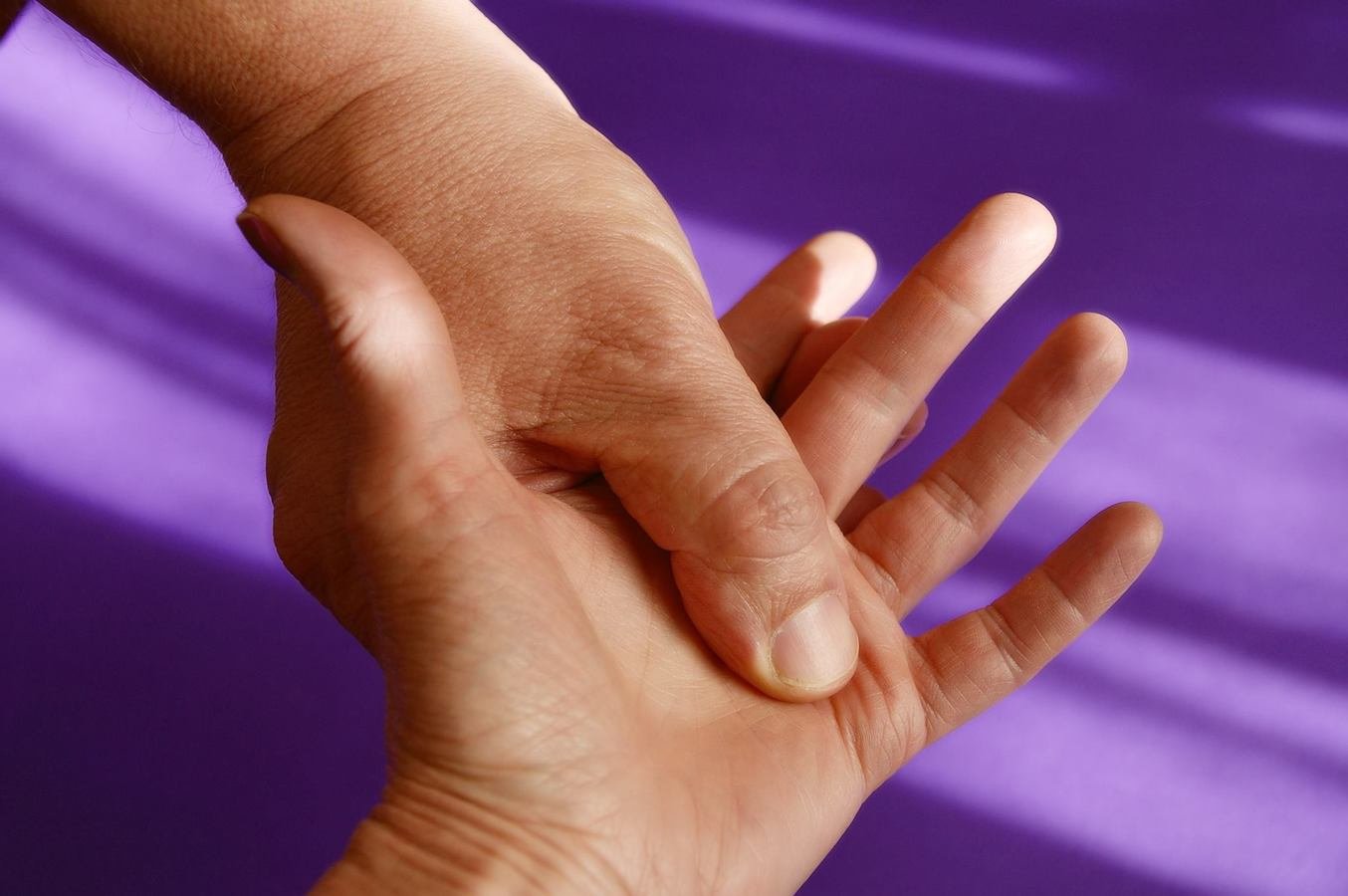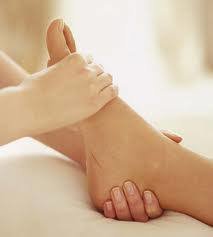REFLEXOLOGY
BY:
Grace Koster
Shakirah Hartley
Jessica Cotterill
COMPLEMENTARY THERAPY:
Reflexology - what is it?
- popular complementary therapy worldwide
- originated from ancient China and Egypt
- utilises massage of body parts to detect health issues, promote healing, and whole body wellness
based on the belief that:
-specific parts of the body reflect the whole
-body’s reflex points are connected and correspond to several organs and parts of the body
Reflex points
- Feet
- Hands
- (face & ears)
...reflex points react to pressure and stimulate the bodies own natural healing process by stimulating the body’s nerves and blood flow
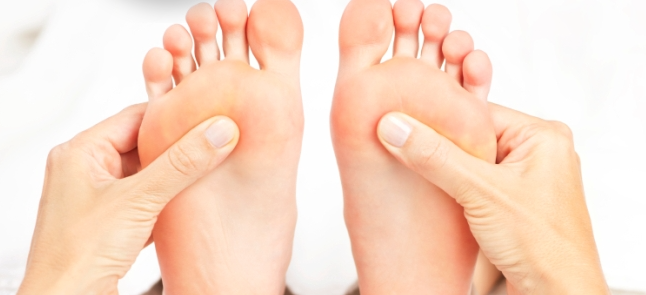
Massage VS.
- utilise micro movement techniques
- focus on reflex points
- stimulate nervous system & release tension
- work from the inside out
Reflexology
- utilise techniques like kneading, tapping & friction
- manipulate soft tissue & relax muscles
- work from the outside in
What is it claimed to be used for?
- relief of pain & tension
- boost circulation
- stimulate internal organs
- restore body functions
- aid allergy symptoms
- asthma
- diabetes
- stress
- anxiety
- gastrointestinal disorders
- headaches
- skin disorders
- cardiovascular issues
- premenstrual syndrome
- respiratory infections
- chronic fatigue syndrome
- kidney function
- injury recovery (especially foot & hand regions)
- relaxation from tired or overused body areas
various health conditions & issues...
Ingham method VS.
- very holistic method
- pressure applied by the finger or thumb bending & straightening (walking along the area of work)
- emphasis on relaxation & harmonising the body systems
Rwo Shur method
- mixture of firm pressure techniques utilising the knuckles & thumb sliding
- sometimes incorporates use of small wooden sticks
- emphasis is on stimulation rather than relaxation
Reflex zone therapy
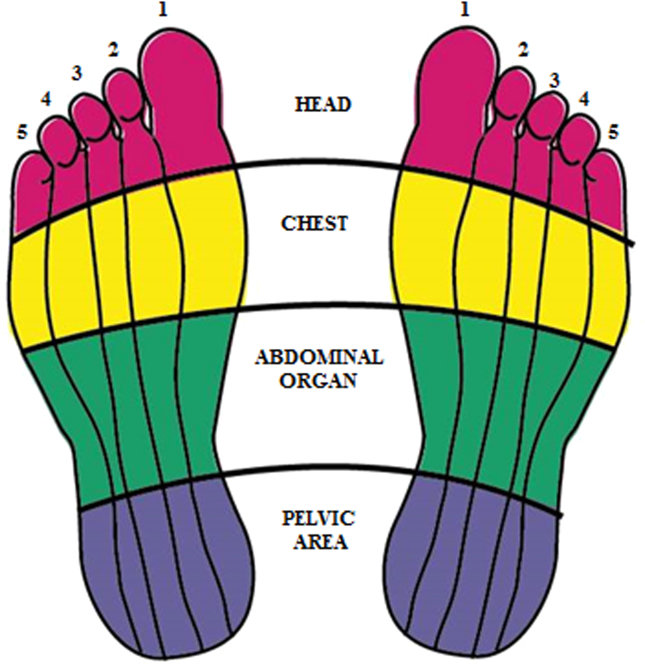
Left side reflex zone therapy
|
Meridian |
Reflex zone |
Corresponding organs |
|
Line 1 |
Left thumbs and big toes |
Pituitary, pineal, brain, hypothalamus, thyroid, sinuses, larynx, nose, trachea, tongue, oesophagus, thymus, heart, spine, pancreas, breast, small intestine and large intestine, prostate |
|
Line 2 |
Left index finger and second toe |
Brain, eye, adenoids, lungs, heart, stomach, spleen, pancreas, breast, small and large intestine |
|
Line 3 |
Left middle finger and third toe |
Brain, eye, lung, breast, stomach, spleen, pancreas, kidney, adrenal gland, small and large intestine |
|
Line 4 |
Left ring finger and fourth toe |
Brain, eye, lungs, breast, large intestine, ovaries |
|
Line 5 |
Left little finger and fifth toe |
Ear |

Embong, NH, Soh, YC, Ming, LC & Wong, TW 2015, ‘Revisiting reflexology: concept, evidence, current practice and practitioner training’, Journal of Traditional and Complementary Medicine, vol. 5, no. 4, pp. 197-206.
Right side reflex zone therapy
|
Meridian |
Reflex zone |
Corresponding organs |
|
Line 1 |
Right thumbs and big toes |
Pituitary, pineal, brain, hypothalamus, thyroid, sinuses, larynx, nose, trachea, tongue, oesophagus, thymus, heart, spine, pancreas, breast, small intestine and large intestine, prostate |
|
Line 2 |
Right index finger and second toe |
Brain, eye, lung, breast, liver, small and large intestine, adenoids |
|
Line 3 |
Right middle finger and third toe |
Brain, eye, breast, liver, gall bladder, kidney, small and large intestine, adrenal gland |
|
Line 4 |
Right ring finger and fourth toe |
Brain, eye, main lymphatic duct, breast, liver, lung, large intestine, ileo-cecal valve, appendix |
|
Line 5 |
Right little finger and fifth toe |
Ear |

Embong, NH, Soh, YC, Ming, LC & Wong, TW 2015, ‘Revisiting reflexology: concept, evidence, current practice and practitioner training’, Journal of Traditional and Complementary Medicine, vol. 5, no. 4, pp. 197-206.
Reflexology Maps...
Left hand top & palm




Right hand top & palm

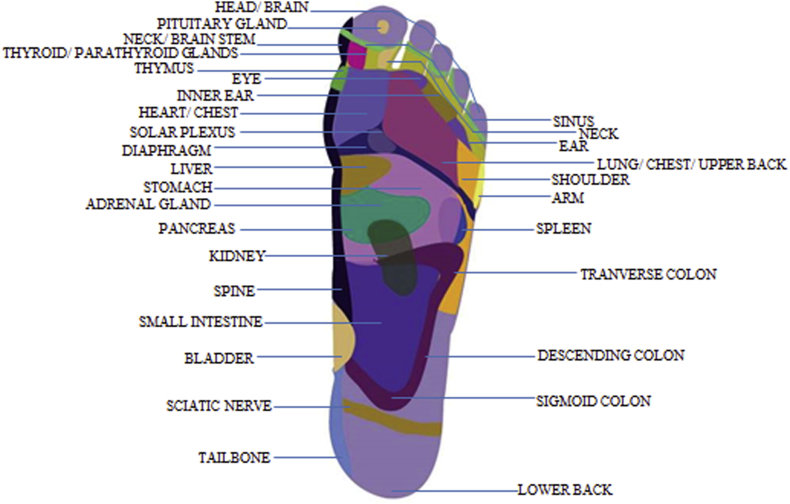
Left foot top & sole

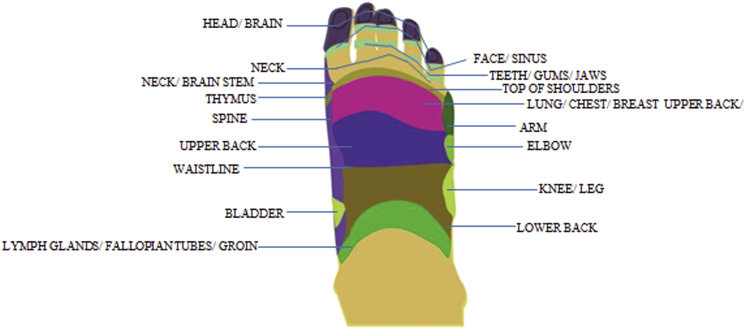
Right foot top & sole
Reflexology session
- Approximately 30 minutes - 1 hour
- Clients attend multiple sessions over a period of time
- Reflexologists work within a client’s pain tolerance
- Sessions can be enhanced by additional elements such as - aromatherapy
-peaceful music
-pleasant environment settings
